On an early spring morning in Kent, Washington, a group of women are gathered around a tall cutting table, watching Sandy Appl demonstrate how to use a rotary cutter. The device, which looks a lot like a tiny pizza cutter, makes cutting strips of fabric as easy as drawing a line.
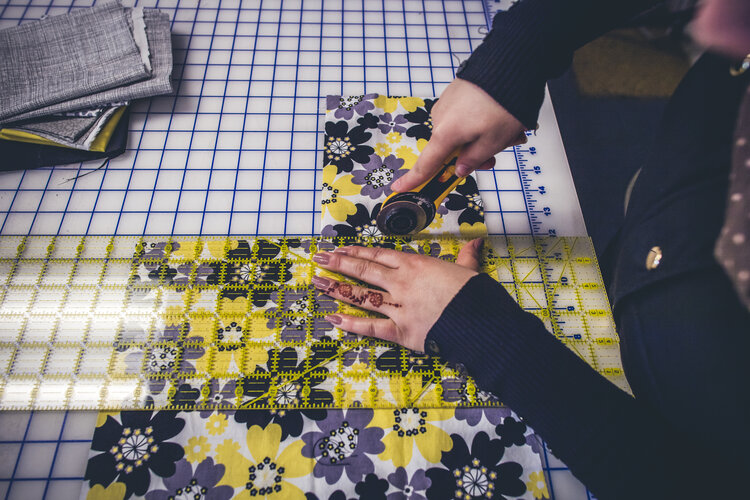
The four tables spanning the room are brightly illuminated by a wall of windows, making it easy to see small stitches. On the side opposite the windows, ironing boards stand ready to use; above them are posters with helpful English words and phrases. When one of the instructors isn’t teaching, the room is filled with chatting and laughter. Each of the eight sewing stations has a machine, a nameplate, and a small plastic crate of supplies and half-finished projects. Over the course of six weeks, the women will make a pillowcase, an oven mitt, a baby quilt, a tote bag, and a zippered pouch.
The women are part of Sewing With Purpose, a ministry of Kent Hillside Church—an International Church of the Nazarene, in partnership with World Relief Seattle. They are also all refugees who are resettled in Washington. Three times a week, they come to the church for two-hour classes and complete projects of increasing difficulty at their individual sewing stations.
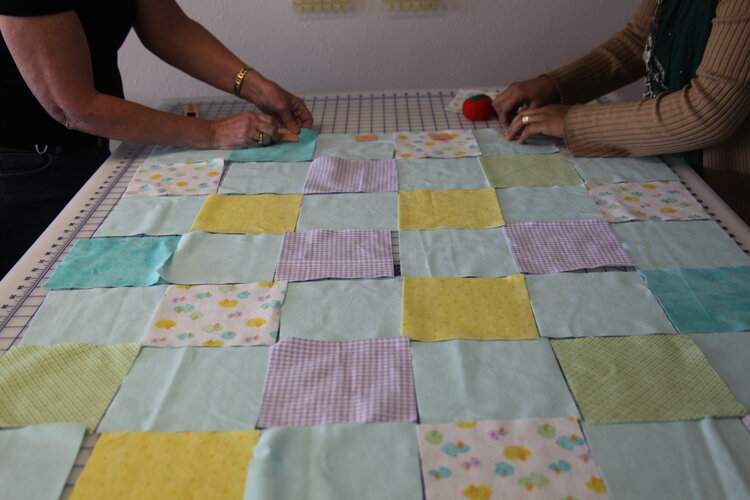
CREATING COMMUNITY
Mursal Alemi had been in the United States for a little less than a month when her caseworker at World Relief Seattle told her about the class. She was a young mother with toddler-age twins, and she and her husband came from Afghanistan without any other family. Being here on their own was extremely lonely, she says; for a while, she cried every day.
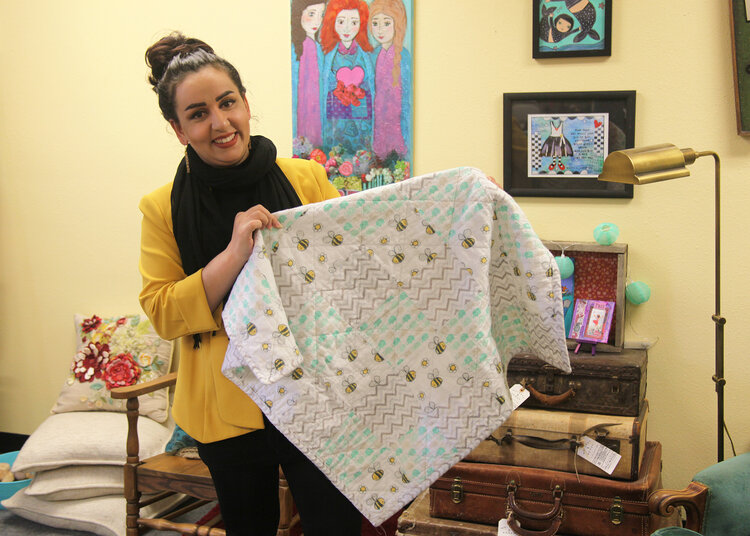
Photo: Callie Stevens
So when she learned about a place where she could practice English and build community, she joined the sewing class for the very first cohort. Alemi is still friends with the women she met there. They regularly have gatherings at each other’s houses.
“Not the first time I’m coming, but after that ... I’m friends with a lot of people,” Alemi says. “Now I’m friends with a lot of people in the class.”
Sewing With Purpose was started in 2017 after World Relief Seattle conducted a focus group with some of the Afghan families who were being settled in Kent, though not all of the women who attend are from Afghanistan. Many, including Alemi, come on a special immigrant visa, or SIV, usually awarded to families in which the men worked as translators or other specialists with theUnited States military. So while their husbands had the opportunity to learn English, many of the women haven’t even had the opportunity to learn to read and write in their own languages.
Like Alemi, the women end up being isolated at home, unable to speak the language in a new country or develop any sort of community. They craved community and the ability to learn English without worrying about mixed-gender classes, which would be viewed as culturally inappropriate.
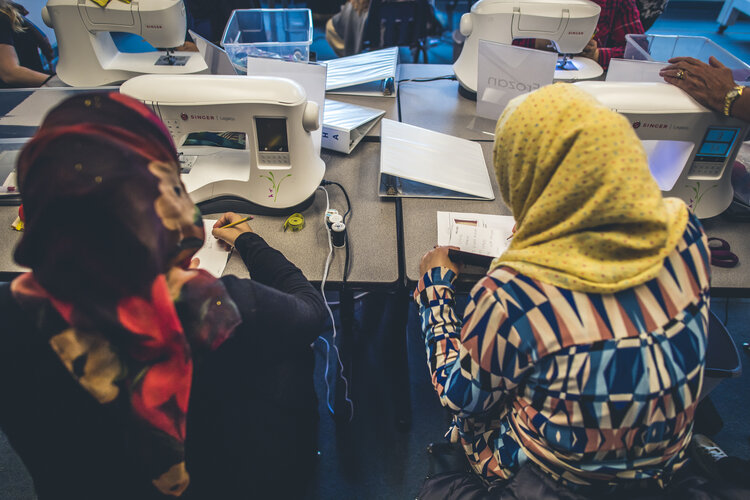
With roles at both entities, Tahmina Martelly helps bridge the gap between World Relief Seattle and Kent Hillside. Martelly herself was an asylum seeker; she came to the United States from Bangladesh. For years, she has worked with those living as refugees or asylum seekers and knew there are challenges unique to women. She started wondering what could be done to help women with stories like Alemi’s. Martelly called around, but no one was offering a sewing class—certainly, there were none nearby with an ESL component. “[We were] basically figuring out, ‘Well, how could we do this?’” Martelly says. “And of course, I knew I could leverage our church.”
TRANSFORMING THE CHURCH
Kent Hillside had the space that World Relief Seattle didn’t; there were several classrooms in the building that were mostly being used as storage. But they still didn’t have supplies for the classes. They needed sewing machines, a curriculum that taught sewing and English, cutting tables, volunteers, childcare—the list seemed nearly insurmountable. Then, as the idea for a class was forming, a woman approached Martelly to offer her 10 sewing machines she had stored away. The woman, Jeanine Boyle, was an instructor for Singer Sewing Machine Company, and she knew how to write sewing tutorials. The class was starting to seem possible, after all.
Boyle and Martelly developed a curriculum that incorporated outcomes for learning English. Then Appl, the current main instructor, helped modify it.
“We’ve tried to make it as complete as possible and build well from the beginning to the end,” she says. “What they make in six weeks with just three mornings is mind-boggling.”
A few of the men in the church built the cutting tables, reducing the cost to $150 each instead of $2,000. Volunteers came to clean out the classrooms, transforming them into craft space, childcare space, and the sewing room. What used to be storing old choir robes and decorations became a place of life and stories.
—
The first cohort of classes started in January 2017. Martelly says they are always tweaking things in their curriculum, trying to get better each time. Initially, the ESL component was a little bit hard to pull off in addition to the large amount of sewing in each session. No one was really trained, and there wasn’t a specific time set aside. Now, an AmeriCorps service member is usually connected with the class through World Relief Seattle. In each session, the volunteer leads the students in 20 to 30 minutes of directed ESL exercises.
—
The church also hosts another non-traditional ESL class: Four days a week, the church hosts a Family Literacy Class run through World Relief Seattle for mothers and their children, from infants to 5 years old. The mothers and children engage in age-appropriate English classes before coming together to practice and learn activities that can be replicated at home. Women have the opportunity, then, to learn both English and ways to engage with their children. “So then they really learn together,” Martelly explains.
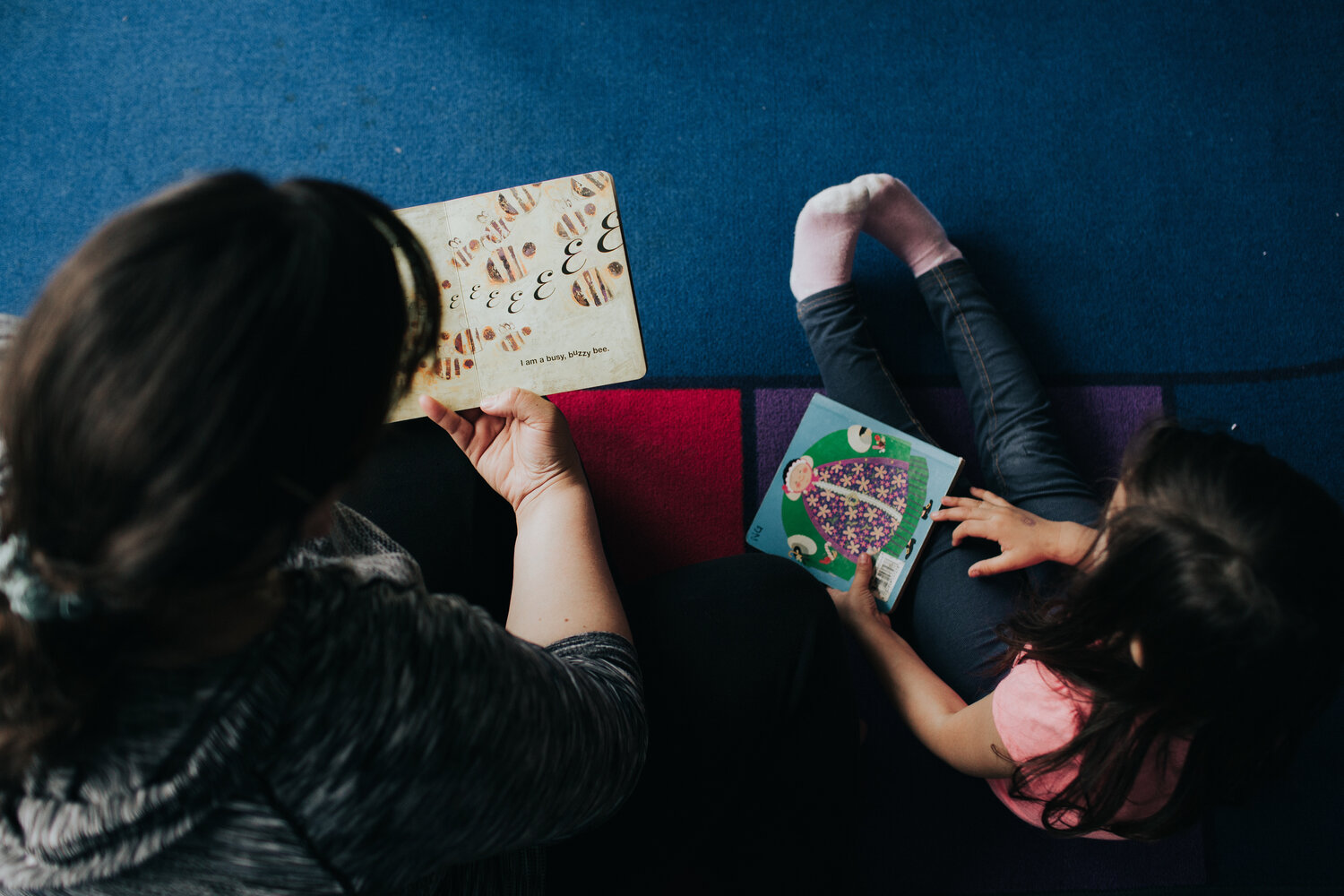
Taken from the latest issue of NCM Magazine. Click here to read the article in its entirety.
To learn more about Sewing With Purpose, click here.

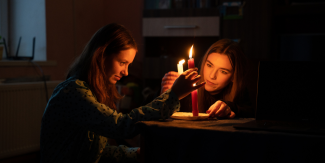
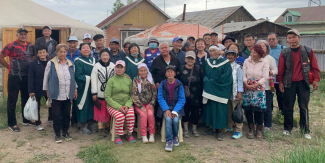
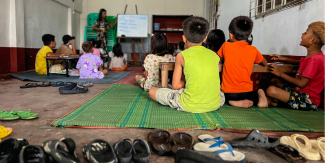
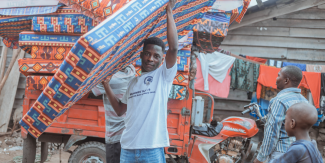
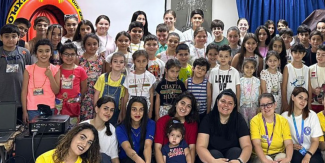
Add new comment